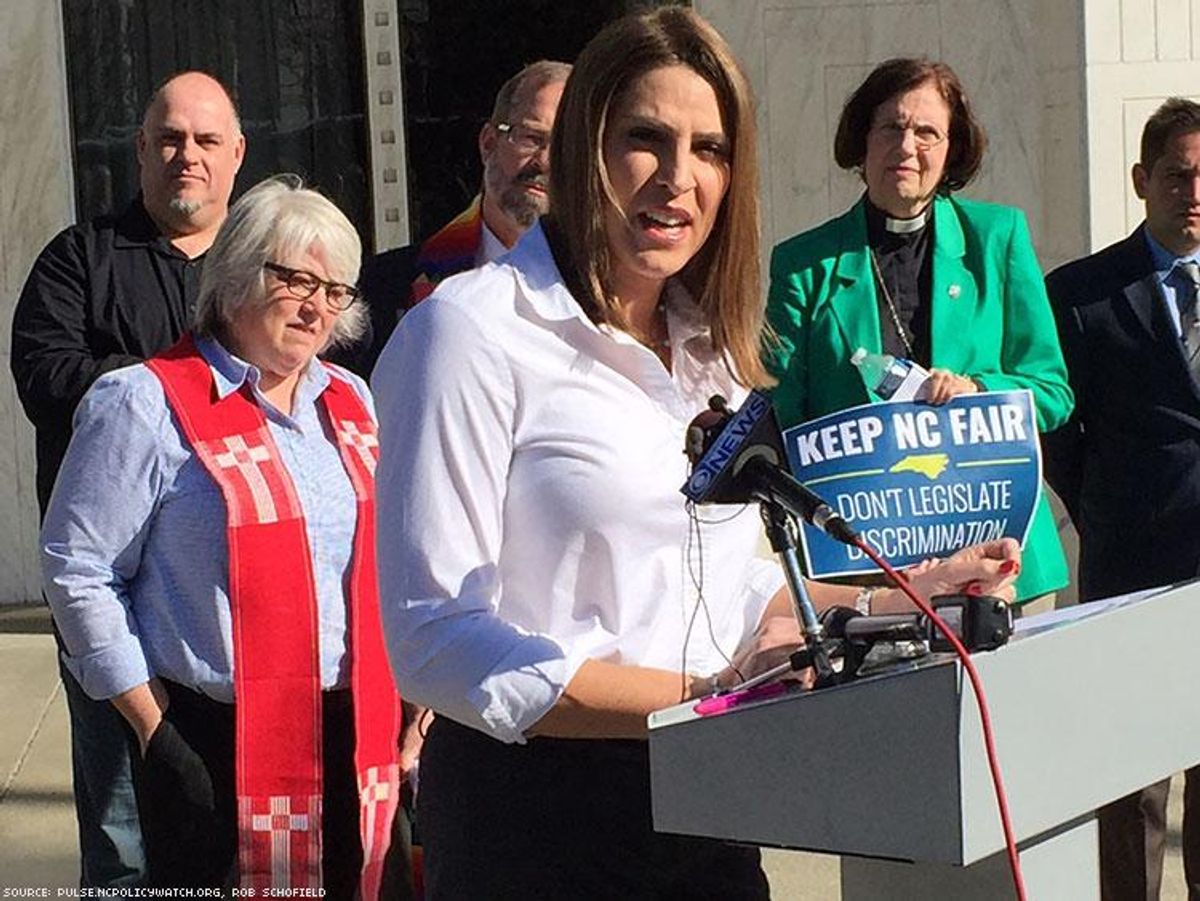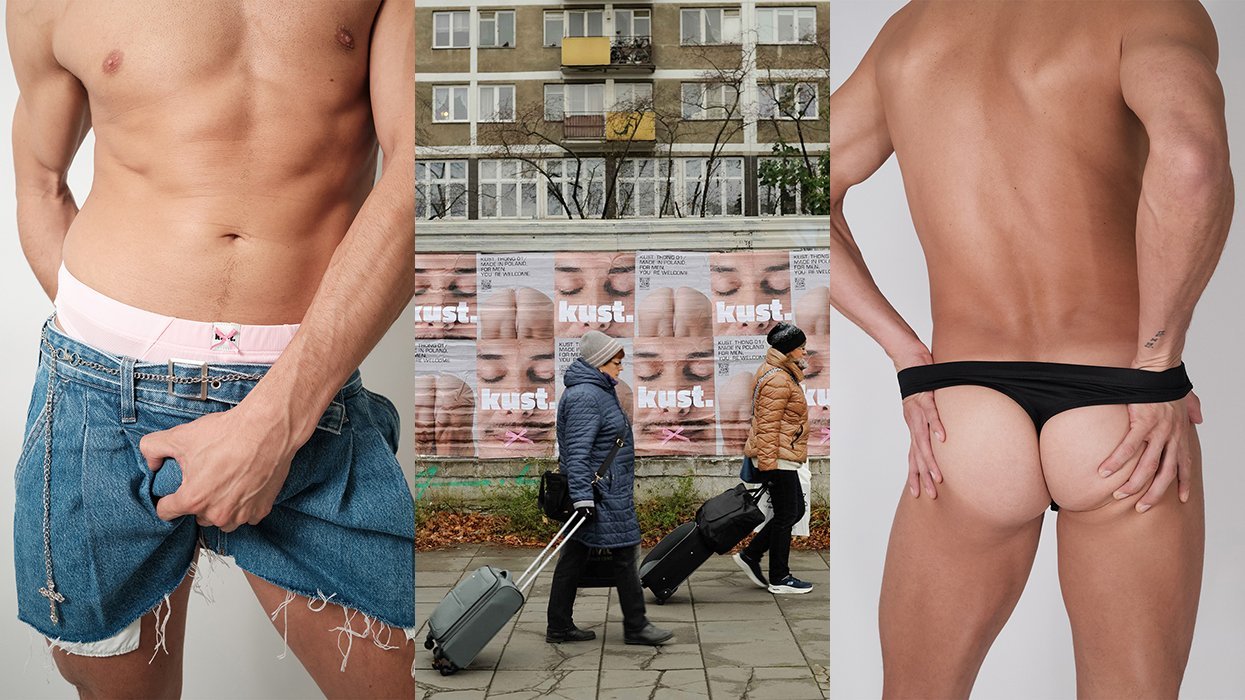Protesters lobbied outside the North Carolina capitol Thursday to stop the state legislature from repealing a Charlotte ordinance protecting the rights of transgender people.
In February the Charlotte City Council approved an LGBT-inclusive public accommodations ordinance that, among other things, allows trans residents to use the public restroom that corresponds with their gender identity.
The state's Republican governor, Pat McCrory, vowed to take "immediate" action if the bill passed. "This shift in policy could also create major public safety issues by putting citizens in possible danger from deviant actions by individuals taking improper advantage of a bad policy," McCrory warned in an email, reports Think Progress.
The Charlotte ordinance takes effect April 1. State officials have "proposed holding a special legislative session" in the next two weeks, reports Charlotte's WRAL. Their hope is to ensure that it never takes effect. If they fail to hold the special session, conservative lawmakers say its repeal is their number 1 priority when the North Carolina General Assembly is back in regular session April 25.
The LGBT advocates who gathered in Raleigh argued that keeping the ordinance intact is crucial to preserving the safety of trans people. Charlotte resident Erica Lachowitz told WRAL that being forced to use the men's restroom as a transgender woman puts her life in danger.
"I've been using the women's room for a very long time because it is safer for me to do that," Lachowitz said. "I would rather be judged in court than run the risk of getting my face beaten in again, because that is more than likely the outcome of that."
Lachowitz was attacked by a stranger two decades ago and nearly killed for her gender identity.
Despite these concerns, conservative critics referred to the Raleigh protests as a "political correctness mob," Senate Leader Phil Berger stated in a press release that protesters are "calling for men to share public restrooms with women and young girls," reports Raleigh-Durham's WTVD.
Berger isn't the first to take issue with Charlotte's ordinance, which also bans discrimination "on the basis of sexual orientation, gender identity, and gender expression." Since passing by a 7-4 margin on February 21, the bill has faced persistent conservative criticism from those who believe it's a gift to criminals.
During the City Council deliberations, one opponent of the bill said to councilmembers, "I'm not scared of transgenders, but sexual predators will see this as a chance for fresh victims."
Another attendee argued that trans residents' claims of discrimination were exaggerated, Charlotte station WBTV reported at the time. "Real discrimination happened at a lunch counter in Greensboro in 1960," Jeanette Wilson said. "Discrimination is based on genetics, not personal choices."
Of the nation's 20 largest cities, Charlotte was one of just three that lacks explicit LGBT protections on the books. It's also just the latest city to spar over public accommodations. A fight over trans bathroom use was at the heart of resistance to the Houston Equal Rights Ordinance, which was voted down by a 25-point margin last November.
Conservatives campaigned against the bill based on the perceived danger of "gender-confused men." Such was the argument put forward by Campaign for Houston, the anti-trans group opposed to the ordinance. In a television ad, the campaign warned voters: "Any man at any time could enter a woman's bathroom simply by claiming to be a woman that day." The commercial ended with a man cornering a little girl in a private stall.
According to the Human Rights Campaign, 44 separate bills are under consideration in 16 states that would limit the restroom access of transgender people based on this "bathroom predator" myth. This is despite the fact that, as numerous studies have found, there's not a single reported case of a trans person harming someone in a restroom.
Opponents of the Charlotte ordinance are expected to hold a news conference on Friday.

















































































